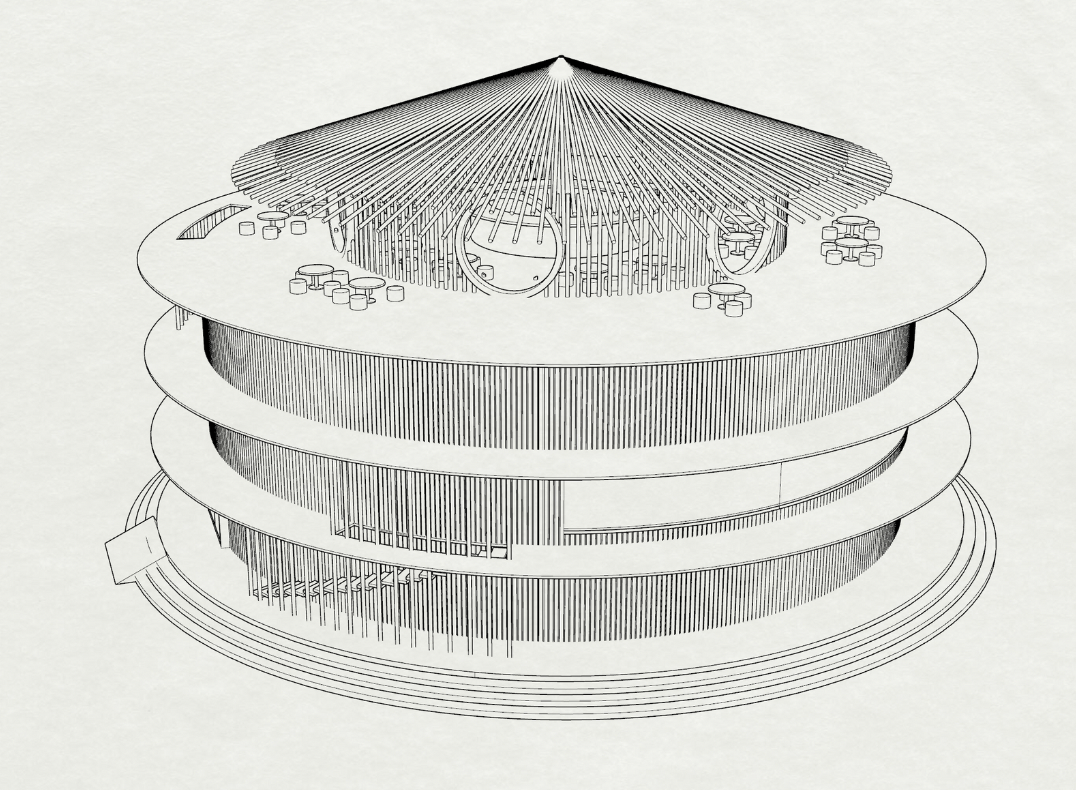VANILLA
PRODUCTION
SPAIN
2024
This project explores the hidden environmental and social costs behind Chanel No. 5, focusing on vanilla as a case study. While vanilla is just one of 79 ingredients, its production in Madagascar has led to deforestation, endangered species, labor exploitation, and economic instability.
As a response, the project proposes a sustainable vertical farming system using native bamboo towers, allowing more efficient vanilla cultivation while saving land and water. A central warehouse supports processing and synthetic vanilla production, while visitor pathways and a rooftop café promote awareness and local employment.
Vanilla Production challenges the idea of luxury and asks: How much harm is hidden in a single bottle — and how close are we to making sustainability the new standard of beauty?
Speculative Design, Sustainability, 3D Modeling
Through this proposed system, eight vertical towers could yield 7,500 vanilla plants, compared to 5,000 in traditional two-hectare farming — resulting in a 53.34% reduction in land use while increasing production. The design also minimizes water waste through a built-in distribution system and promotes the use of synthetic vanillin derived from tapia trees, supporting reforestation and reducing environmental harm.
Beyond its ecological benefits, the vertical farming structure addresses theft and incarceration—a major issue in Madagascar’s vanilla trade—by creating more secure, elevated growing environments. This helps protect farmers, reduce youth imprisonment linked to vanilla theft, and promote safer, more stable labor opportunities. Combined with public pathways and a rooftop café, the system reframes vanilla production as a new model for sustainable luxury.













